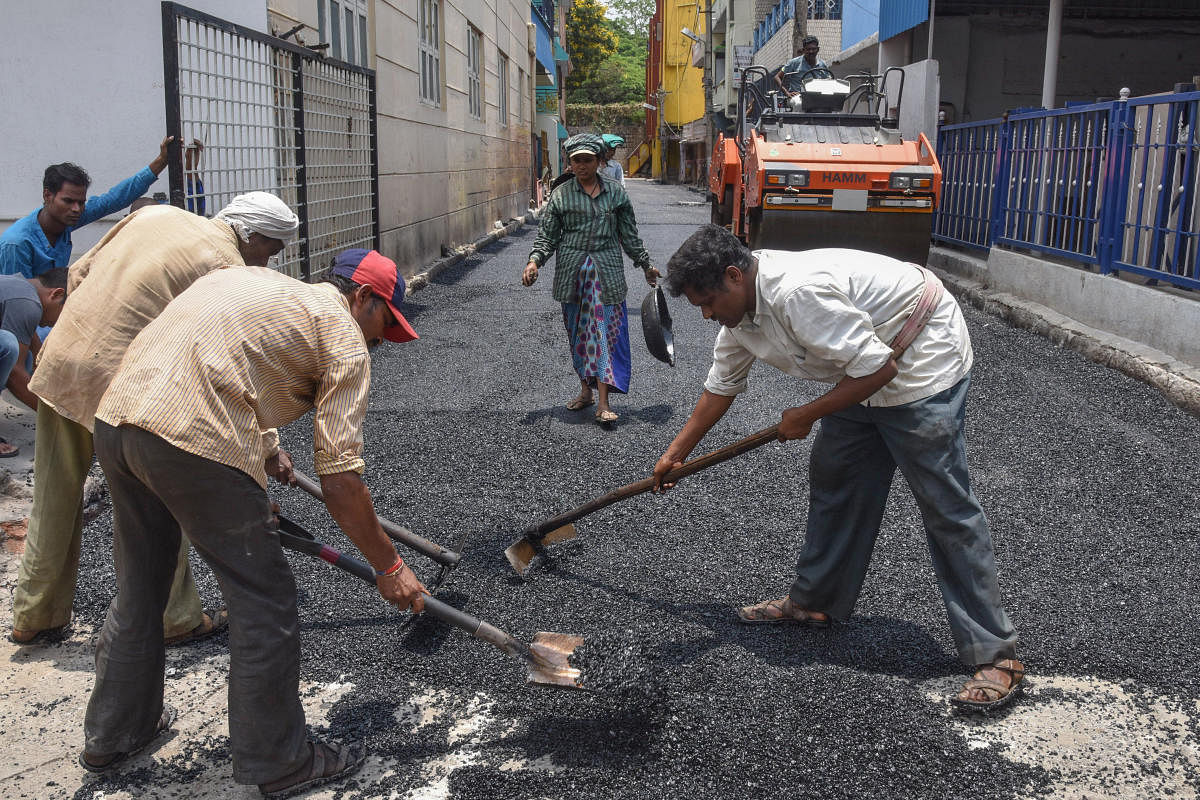
The constitution of a three-member committee, headed by High Court retired justice Rathnakala to vet all tenders for projects costing above Rs 50 crore, is one of the several moves Chief Minister Basavaraj Bommai has made to counter the narrative that the BJP government is corrupt.
In fact, the decision to constitute such a committee was taken November last year after an allegation, made by the Karnataka State Contractors’ Association that they are forced to pay a 40% commission to elected representatives hit the Bommai government in its face, and the Opposition Congress started breathing down the chief minister’s neck.
It is another thing that it took six months for the committee to be constituted.
The committee will vet tenders and estimates prepared to procure goods and services, including construction work, whose value exceeds Rs 50 crore.
The committee, which has retired water resources secretary BG Gurupadaswamy and former state accounts and audit director K Nandakumar as members, will check if project estimates are inflated.
“Even Andhra Pradesh has such a committee,” Karnataka Administrative Reforms Commission-2 chairperson T M Vijay Bhaskar says.
“With the scrutiny, there will be a lot of savings to the government. It’ll also reduce litigation,” the former chief secretary adds.
More questions
However, even as the committee is all set to begin its work soon, the government’s move has led to more questions than answers.
For, not only has it failed to appease contractors who have been complaining about corruption, sources within the government are concerned that this committee will further delay the tender process.
Some members of Bommai’s Cabinet are themselves not convinced. “As it is, it takes at least 15 days for files to move between Vikasa Soudha, Vidhana Soudha and MS Building even with a proper follow-up. We fear that an additional committee would only slow the process further. We conveyed this subtly to the CM,” a minister said.
Piece works
The government’s decision has failed to appease the contractors too. For, according to them, it doesn’t address issues concerning tenders below Rs 50 crore.
“It is with projects below Rs 50 crore where a lot of irregularities happen. Especially, when it comes to ‘piece works’ where engineers demand a cut,” Karnataka State SC/ST Contractors’ Association president Mahadevaswamy says.
No knowledge of rules
According to the government’s e-procurement portal, tenders above Rs 50 crore constitute a very small percentage of the total tenders. For instance, among the tenders published between November 1, 2021, and April 30, 2022, 267 tenders were valued below Rs 10 crore. Eighteen tenders were called for projects above Rs 10 crore, of which only two cross Rs 50 crore.
Instead, the government must look at creating awareness about existing provisions under the Karnataka Transparency in Public Procurement Act (KTPP Act). Not many government officials and lawmakers are aware of it, Mahadevaswamy adds.
Earlier this week, the Bommai government also capped tender premiums (profit-making) at 5% and instructed all departments to follow the ‘first come, first served’ basis in paying bills for which software will be developed.
‘Govt move an eyewash’
Mincing no words, former Lokayukta Justice N Santosh Hegde termed the government’s move an “eyewash”.
Taking the example of the Lokayukta report on illegal mining which implicated several influential leaders, Hegde points out how successive governments failed to act.
“If the government is serious about tackling corruption, it must make use of the existing agencies to bring the corrupt to book,” he says.
“Moreover, irregularities don’t happen in isolation. An entire system is involved, including those in the legislature, executive and judiciary. Unless people are not afraid of the law and consequences of being corrupt, one committee will not make a difference.”
